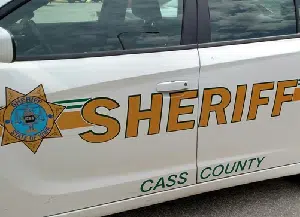(Des Moines) While some parts of Iowa continue to experience high and rising flood waters, other communities are in recovery and cleanup mode. The Iowa Department of Natural Resources (DNR) encourages people to prioritize safety and avoid flood waters until they recede.
Many rivers and lakes in Iowa are unsafe for swimming or boating due to fast currents, floating debris, hidden obstacles, and the potential of bacteria. Boaters and paddlers should plan as additional areas may become unsafe as flood waters move downstream.
This Independence Day holiday may be hazardous for boating on Iowa lakes and rivers due to heavy rain and flooding.
Susan Stocker, Iowa Department of Natural Resources, says boaters and their passengers should watch for tree debris in the water.
Several Iowa state parks have alerts and closures due to high waters, including:
- Dolliver Memorial State Park—The entire park is closed due to flooding caused by the Des Moines River.
- Fairport State Recreation Area– the campground and boat ramp are closed due to high water on the Mississippi River.
- Fort Defiance State Park– trails are closed due to flood debris and bridge damage.
- George Wyth State Park– the entire park is closed due to high water.
- Great Lakes area: Several state park beaches, docks, and ramps are still underwater. Gull Point park and campground are closed. Existing campground reservations at Emerson Bay, Elinor Bedell, and Marble Beach are being honored, but new reservations or walk-in camping are unavailable through at least July 7. All other parks in the region remain open, but caution is advised.
- Lake Manawa State Park is open, but Catfish Road is closed due to high water.
- Ledges State Park—The park is open, but Canyon Road, Lower Ledges Road, the Des Moines River boat ramp, and the Flood Pole parking lot are closed.
- Stone State Park– the west entrance is closed while park staff clean up debris left behind by receding floodwaters. The east entrance is open.
- Wilson Island State Recreation Area– the park is closed due to Missouri River flooding.
For the latest updates, visit the DNR’s state park alerts and closure web page.
For recovery assistance, visit Iowa Homeland Security’s disaster recovery web page or local emergency management teams, which should have resources to help with immediate needs.
The Iowa DNR provides disaster assistance with debris management and other environmental impacts to communities, businesses, and citizens. Visit DNR’s disaster recovery web page for information. Some important considerations:
Homeowners with private wells impacted by floodwaters can visit the DNR’s private healthy flood information web page for information on testing.
Sorting disaster debris after flooding is essential to keep cleanup teams safe and to ensure debris is disposed of properly.












